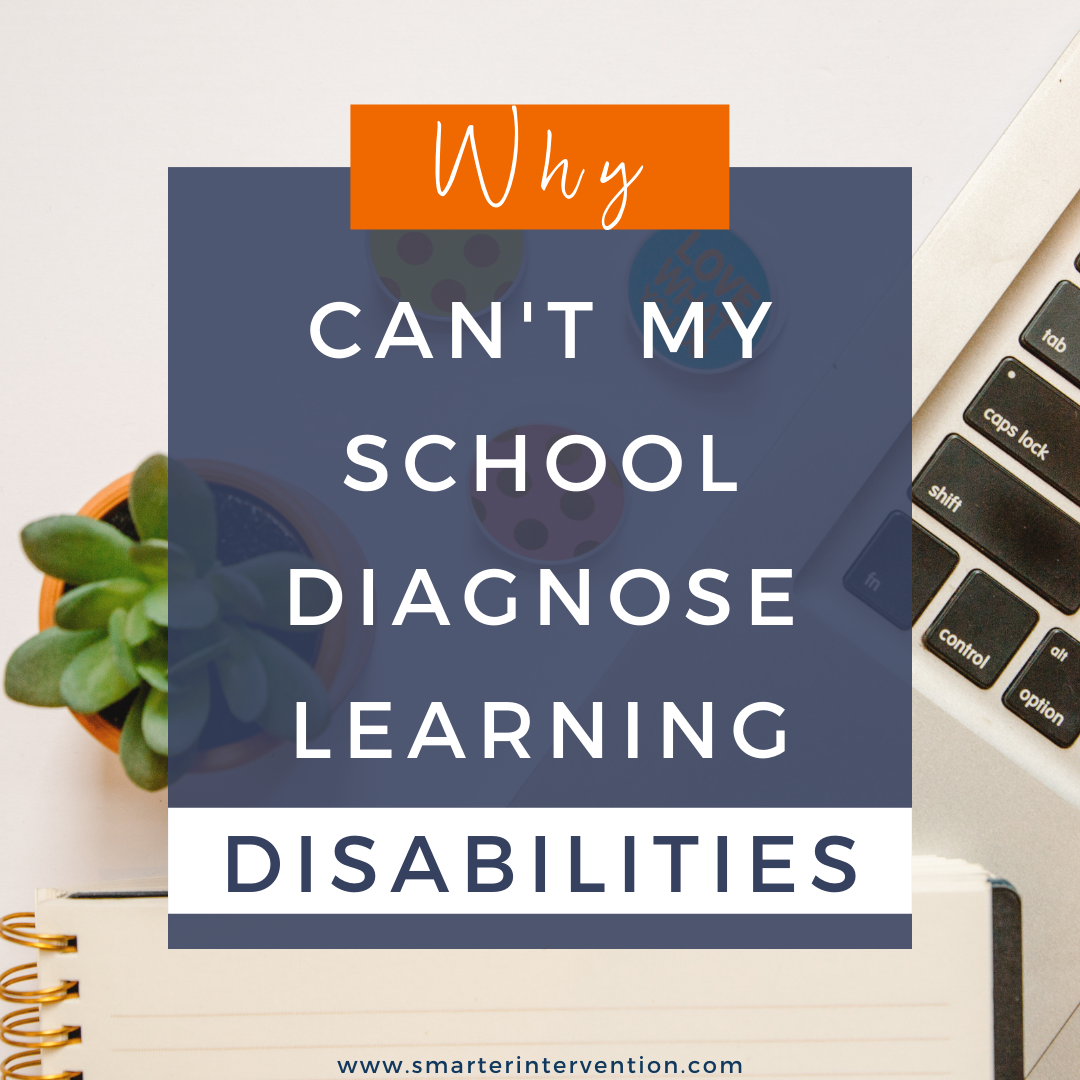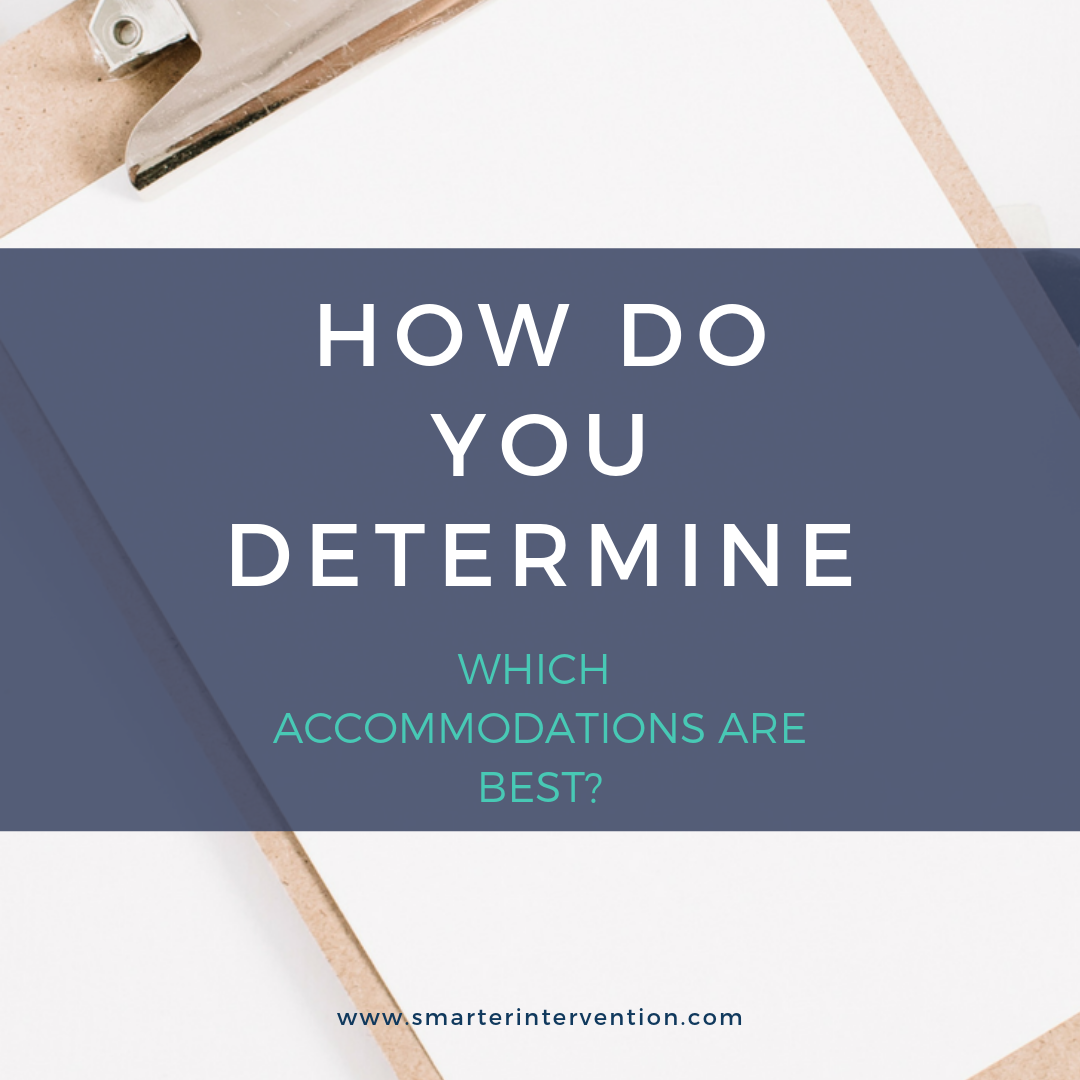Science-based literacy resources and articles
for families, educators and schools
Search by Category:
Categories
- Advocacy
- Authentic Literature
- Business
- Comprehension
- Data Tracking
- Differentiation
- Dyslexia
- Evaluation and Assessment
- Executive Functioning
- Games & Activities
- Helping My Child At Home
- How To
- IEP/504 Plan
- Lesson Planning
- Math
- Online Intervention
- Organization
- Parents
- Phonics
- Phonological Awareness
- Reading Comprehension
- Reading Fluency
- Research
- SLP
- Spelling
- Vocabulary
- Writing
Why Can't My School Diagnose Learning Disabilities?
So often we hear from frustrated parents that they are receiving a run-around from their school. As a parent, when our child is struggling we want answers.
However, it can be complicated and sometimes it feels like you’re being told different things by different people!
Which Accommodations are Appropriate?
So if you have or know of a child who is struggling academically - hopefully they’ve been able to move through the first step of our 3 Step Assess - Design - Implement process.
Once a student has been assessed, we can begin to design an appropriate plan.
Accommodations, Modifications, and IEP Service Times - Oh My!
One of the most challenging things about walking into an IEP meeting for both parents and educators is that there are so many things you need to be considering.
This Week:
We are so excited to share with you this printable that we have that helps us to organize IEP Services.
What's the Deal with All This School Testing?
So often parents ask us the purpose of all the testing that is going on at school. It may seem like the academic calendar is based around preparing for the tests and then preparing for the results of the tests to come in, and just anxiety all around for students and teachers. So we wanted to take a moment to talk about the different types of testing that may be going on and the purpose of each different type of testing.
Is Ear Reading Really a Thing?
A hallmark of dyslexia is an inconsistency between a child’s reading level and oral language level. Often, dyslexic students are highly verbal; talkative, inquisitive, articulate, and have amazing vocabularies!
One of my all-time favorite students who happened to be dyslexic had the most amazing vocabulary as a young student, he still does today! He would hear a new word used in the context of a book or adult conversation and immediately add it to his repertoire.
My Child Has Been Diagnosed with Dyslexia...Now What?
This can be both a difficult and freeing experience. Now, you know the reason that your child is struggling, but you feel lost and alone and aren't sure what to do next.
There is a two-pillar approach for helping your child close academic gaps. These two pillars stand together forming the "bases" of your child's success in the classroom. The first pillar is getting appropriate accommodations and/or modifications put into place within the school. If you need help getting appropriate accommodations we are happy to help.
How Do You Determine which Accommodations are Best?
Once you have intervention in place to be sure your child is closing any skill gaps:
How do you get the right support from the school?
Talking with your child's school team is of paramount importance. You want to be sure that while your child is getting the help they need privately or through school-based intervention, that they are not continuing to fall further behind in the classroom.








